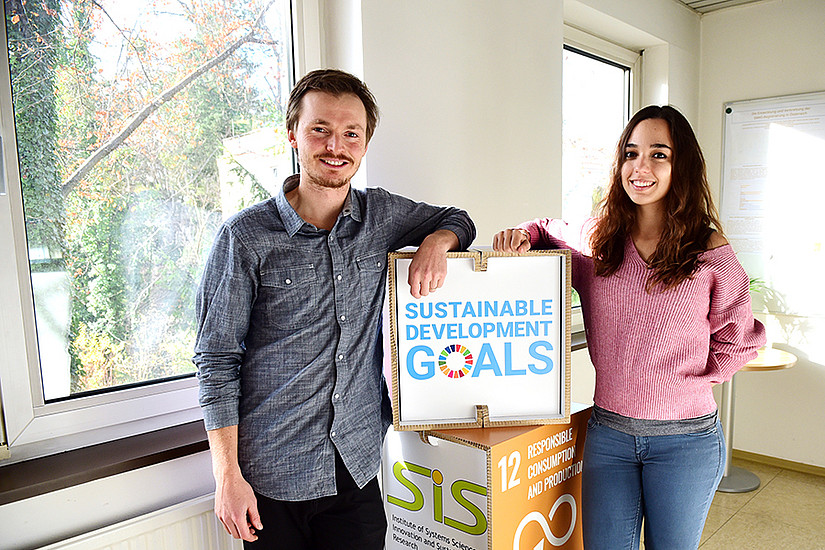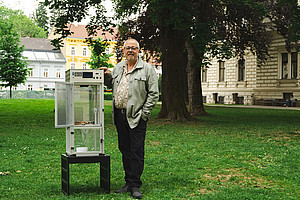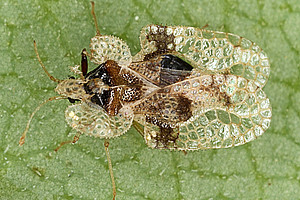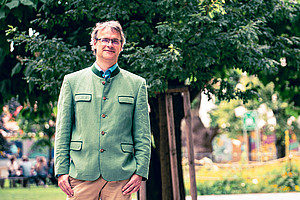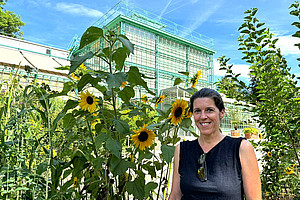Anna is Spanish, Tomas is from Chile. Both are researching for their doctoral thesis at the University of Graz on issues related to the concept of the Circular Economy. This is of great interest if we want to reduce greenhouse gas emissions. Their goal: to find ways to use resources as efficiently as possible and minimise waste. As scholarship holders of the EU-funded international PhD network “Circular Economy: Sustainability implications and guiding progress (CRESTING)” Anna Diaz Tena and Tomas Santa Maria Gonzalez have chosen the University of Graz because of its excellent research environment.
Helping to make decisions about sustainable product design
Reuse, repair, recycle – there are different strategies to save resources. Which should a company choose when designing its products? Should they be designed to last as long as possible or should they be easy to recycle? At present, companies have no way to assess up front which of their strategies would have the most beneficial environmental and social impact. Anna Diaz Tena wants to use her research to lay the foundations to develop such an evaluation tool that could serve as a decision-making aid for companies.
Conventional analysis tools such as the “Life Cycle Assessment” seem unsuitable for this purpose. “One problem is that they require a large amount of data that is not available before the development process begins,” Anna explains. For her doctoral thesis she interviewed product designers from the automotive, aerospace and electronics industries to identify problems in the process of developing sustainable products. These could be, for example, the emissions and raw materials associated with production, or aspects such as fair wages and child labour.
Support in the innovation process
Every company that wants to be part of the Circular Economy must be innovative in how it develops its business model. Along the way, they face challenges that all companies must deal with. These challenges are what Tomas is examining as part of his doctoral thesis. His research results should contribute to a better understanding of the innovation process and lead to the development of guidelines that help companies in this process.
There are many ways to implement the principles of the circular economy. For example, IKEA takes back old furniture, renovates it and sells it again at a lower price. Philips, on the other hand, relies on a product-service system. The company supplies the Amsterdam Schiphol airport with lighting. The airport pays for a service. To get the most out of the business, Philips uses durable, energy-saving components.
Tomas Santa Maria Gonzalez has used companies in the textile, furniture, electronics and recycling sectors for his case studies and has collected detailed information on the innovation process and its economic, social and environmental consequences. “There is a lot of literature on innovative business models that follow the principles of the circular economy. However, what path they need to take to get there has hardly been investigated yet”, Tomas points to a gap in the research and at the same time to the importance of his work. He is putting his knowledge to practice during an internship at Saubermacher, where he is supporting the refinement of an innovative Circular Business Model the company is about to lunch into the market.
Anna and Tomas are being supported in their research by Rupert Baumgartner at the Institute of Systems Sciences, Innovation and Sustainability Research. He is head of the Christian Doppler Laboratory for Sustainable Product Management enabling a Circular Economy, which offers them great research synergy opportunities.
